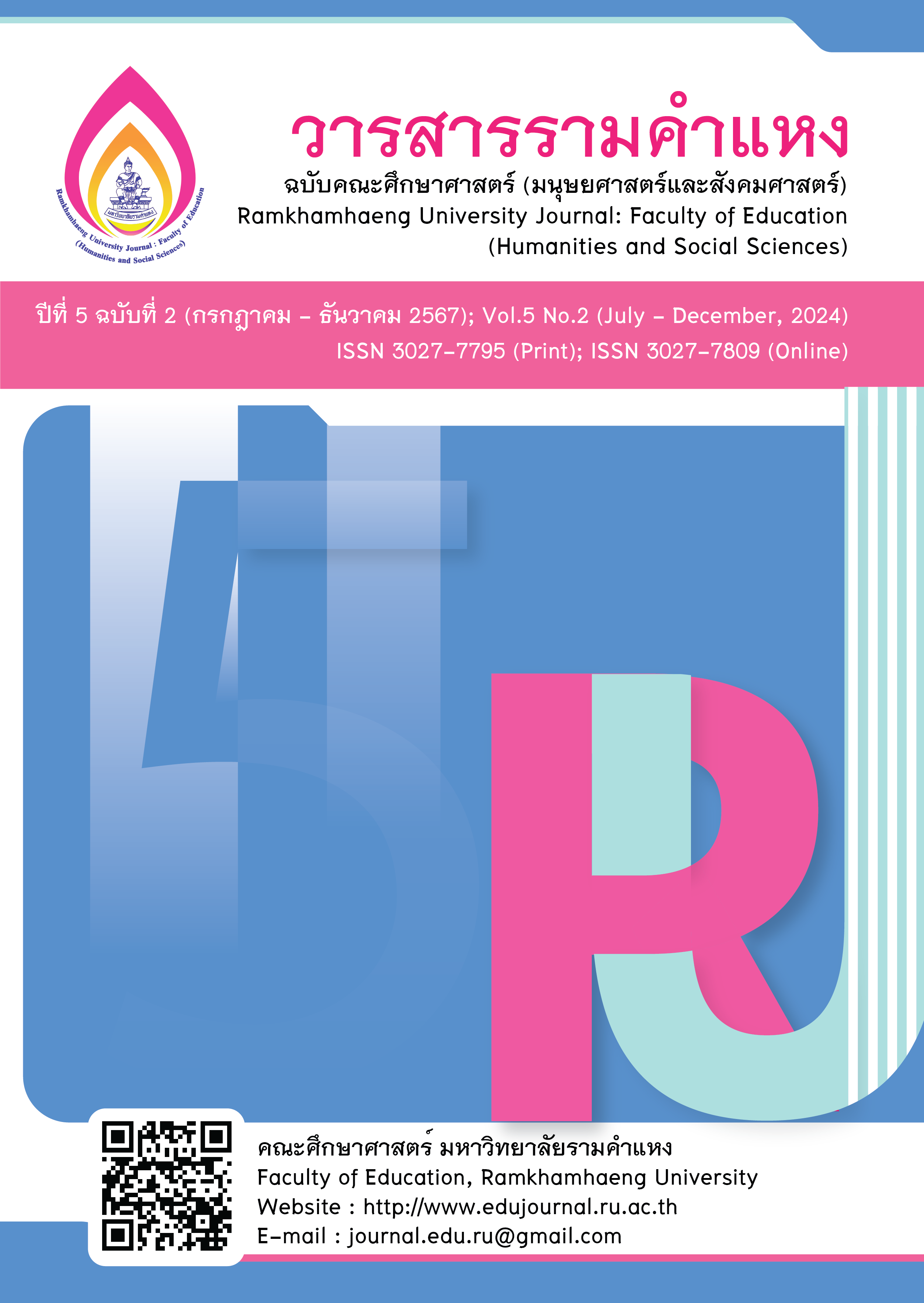อุปนิสัย “พอเพียง” เริ่มต้นสร้างตั้งแต่เด็กปฐมวัย
Main Article Content
บทคัดย่อ
การปลูกฝังอุปนิสัยพอเพียงควรเริ่มต้นสร้างตั้งแต่เด็กปฐมวัย เพราะเป็นช่วงวัยแห่งพลังการเรียนรู้และ การเจริญเติบโตของชีวิต โดยปลูกฝังให้เด็กรู้จักความพอประมาณ ประหยัด ช่วยเหลือตนเอง มีเหตุผล มีวินัยในตนเองในการพัฒนาเด็กให้มีคุณลักษณะดังกล่าว ควรมีกระบวนการเปลี่ยนแปลงพฤติกรรมเดิมสู่พฤติกรรมใหม่ ด้วยการให้ประสบการณ์หรือฝึกฝนจนเปลี่ยนแปลงเป็นพฤติกรรมที่ดีถาวรติดตัว เด็กใช้ชีวิตอยู่ในห้องเรียนอนุบาลเป็นส่วนใหญ่ครูจึงมีบทบาทสำคัญในการจัดประสบการณ์การเรียนรู้ด้วยรูปแบบกิจกรรมการเรียนรู้ที่หลากหลาย รวมทั้ง ขณะปฏิบัติกิจวัตรประจำวัน โดยสอดแทรกอุปนิสัยความพอเพียงให้เด็กมีติดตัวไปจนเติบโตเป็นผู้ใหญ่
Downloads
Article Details

อนุญาตภายใต้เงื่อนไข Creative Commons Attribution-NonCommercial-NoDerivatives 4.0 International License.
ผู้ส่งบทความ (และคณะผู้วิจัยทุกคน) ตระหนักและปฎิบัติตามจริยธรรมการวิจัยอย่างเคร่งครัด ทั้งนี้บทความ เนื้อหา ข้อมูล ข้อความ ภาพ ตาราง แผนภาพ แผนผัง หรือข้อคิดเห็นใดๆ ที่ปรากฎในบทความ เป็นความคิดเห็นและความรับผิดชอบของผู้ส่งบทความ กองบรรณาธิการไม่จำเป็นต้องเห็นตามเสมอไป และไม่มีส่วนรับผิดชอบใดๆ โดยถือเป็นความรับผิดของของเจ้าของบทความเพียงผู้เดียว
เอกสารอ้างอิง
Bunyarit, W. (2017). Assessment and behavior enhancement in early childhood. Sukhothai Thammathirat Open University Press. (in Thai)
Bureau of Academic Affairs and Education Standards. (2017). Early childhood curriculum era 2560. The Teachers’ Council of Thailand. (in Thai)
Iamsupasit, S. (2011). Teaching behavior in early childhood education. Sukhothai Thammathirat Open University Press. (in Thai)
Kammanee, T. (2015). Sufficiency economy philosophy and learning management in example of learning management for promoting sufficiency traits. Amarin Printing. (in Thai)
Khayankij, S., & Iamsupasit, S. (2013). Principles of early childhood education. Sukhothai Thammathirat Open University Press. (in Thai)
Munsettavith, C. (2011). The innovation of early childhood learning for sustainable development based on sufficiency ways. Journal of Education Studies, 39(1), 29-41. (in Thai)
Nacharoen, J & Manoonsilp, A. (2019). Early Childhood teachers and child development according to the King's Philosophy. Valaya Alongkorn Review (Humanities and Social Science), 9(3), 211-221. (in Thai)
Office of the Education Council. (2017). The national scheme of education B.E. 2560-2579 (2017-2036). Office of the Education Council. (in Thai)
Office of the Education Council. (2019). Early childhood development ACT B.E. 2562 (2019). Office of the Education Council. (in Thai)
Pinyoanuntapong, S. (2013). The development of Thai early childhood education curriculum to promote desirable characteristics of preschool children. Procedia-Social and Behavioral Sciences, 88, 321-327.
Sommitr, R. & Makkasman, W. (2017). Innovation media and educational technology in early childhood. Sukhothai Thammathirat Open University Press. (in Thai)
The supporting project of driving sufficiency economy in basic education and youth. (2013). Do & don’t: Sufficiency economy philosophy learning model of early childhood. Yuvabadhana Foundation. (in Thai).
Watanachai, K. (2012). Royal King’s Rama 9 works principle and sufficiency economy philosophy. Borpith Press. (in Thai)


